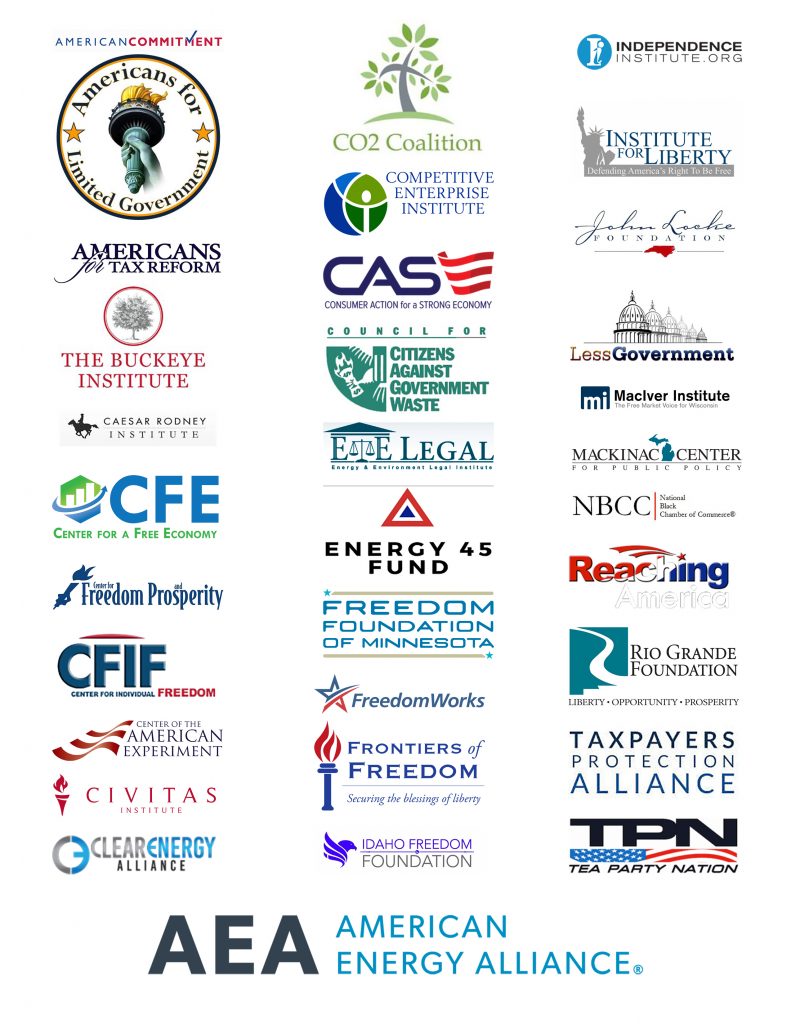Coalition to Senate Leaders: Put the Brakes on Electric Vehicle Subsidies
33 free-market organizations join effort opposing extensions or increasing EV tax credits
WASHINGTON DC (December 10, 2019) – Following the launch of their latest initiative against unnecessary subsidies, the American Energy Alliance (AEA), backed by thirty-two additional signers, issued the following letter to Senate Majority Leader Mitch McConnell urging him and his colleagues to oppose any kind of end-of-year deal that includes an extension or increase of the electric vehicle (EV) tax credit.
AEA President Thomas Pyle made the following statement:
“History has proven that lawmakers tend to cut awful deals before rushing out for the holidays. This year is shaping up to be no different. With talk by the Democrats of insisting on an expansion of the electric vehicle tax credit in any final tax extenders deal, it is up to the leaders in the Senate to protect taxpayers and oppose any such deal.”
“The evidence is overwhelming. The electric vehicle tax credit was designed to be temporary, it has proven to be inefficient, costly, unfair and a handout to wealthy elitists who primarily live on the coasts. As House Democrats have put electric vehicle subsidies at the top of their ill-conceived Green New Deal, Senate leaders must step up and put the brakes on the expansion of the electric vehicle tax credit.”
A text version of the letter is below.
We, the undersigned organizations, write to object to any compromise
that extends, expands, or enlarges the electric vehicle tax credit.
As we have repeatedly argued, the drafters of the tax credit were clear
and prudent in their crafting of the credit’s introductory language,
which limited the credit to each manufacturer’s first 200,000 electric
vehicle sales. Senator Orrin Hatch, sponsor of the original legislation in
2007, stated:
I want to emphasize that like the tax credits available
under current law for hybrid electric vehicles, the tax
incentives in the FREEDOM Act are temporary. They are
needed in order to help get these products over the initial
stage of production, when they are quite a bit more
expensive than older technology vehicles, to the mass
production stage, where economies of scale will drive costs
down and the credits will no longer be necessary.
Now, more than a decade on, the wisdom holds. With EV sales
continuing to increase year after year, no justification exists to extend,
expand, or enlarge the electric vehicle tax credit. The Senate must act
in favor of fiscal conservatism and commonsense by simply remaining
faithful to the legislation’s purpose and allowing the credit to run its
course.
The electric vehicle tax credit is not necessary to support the vehicle
market in the U.S. It is a $9.7 billion subsidy that, for all practical
purposes, serves the wealthy. A recent study found that 79 percent of
electric vehicle tax credits were claimed by households with an
adjusted gross income of more than $100,000 a year.
Further, 46 percent of the credits flow to one state, California, despite
it making up just 12 percent of the national market for automobiles.
This geographical iniquity alone should give Senators pause as they
consider who is served by the tax credit and at whom that cost comes.
The fact of the matter is that wealthy, coastal, new car buyers and
companies like Tesla are the primary beneficiaries, while the average
American taxpayer is left on the hook.
What’s more, the majority of voters oppose this wealth transfer. According to polling research conducted last summer, two-thirds of voters say they do not want to help people buy electric vehicles. They also overwhelmingly oppose being forced to pay for new vehicle charging infrastructure. In general, American voters trust the market to sort out vehicle purchases. The Senate should trust in their wisdom.
House Democrats have put electric vehicle subsidies at the top of their
ill-conceived Green New Deal, but to add insult to fiscal injury electric
vehicles are not cleaner than modern internal combustion engines. As
explained in studies from the Manhattan Institute and the IFO Institute
in Germany, life-cycle emissions from electric vehicles may even
exceed those from new internal combustion engine vehicles.
Extending, expanding, or enlarging the electric vehicle tax credit would further enrich wealthy, coastal elites and a handful of companies. It up to you and your fellow Republicans in the Senate to protect American taxpayers.
The electric vehicle tax credit was meant to nurture an infant industry,
not provide corporate welfare in perpetuity. The electric vehicle tax
credit should be eliminated, but at the very least, Senate Republicans
can forcefully reject extending, expanding, or enlarging this dreadful
subsidy.
The full letter and list of signatories can be read here.

- Press Release: AEA Launches Initiative Calling on Republican Senators to End Welfare for Auto Manufacturers and Wealthy Coastal Elites
- Press Release: Voters to Congress: Make a U-Turn on Special Vehicle Preferences
- Free Market Coalition to Congress: No Electric Vehicle Tax Credit Expansion
For media inquiries please contact:
[email protected]
###

